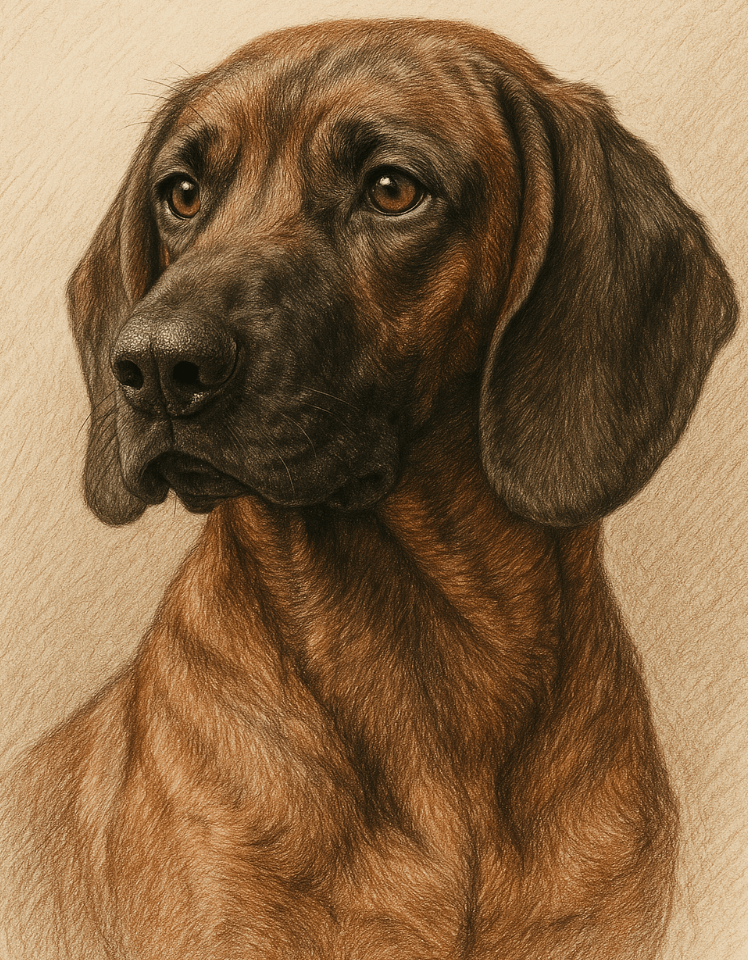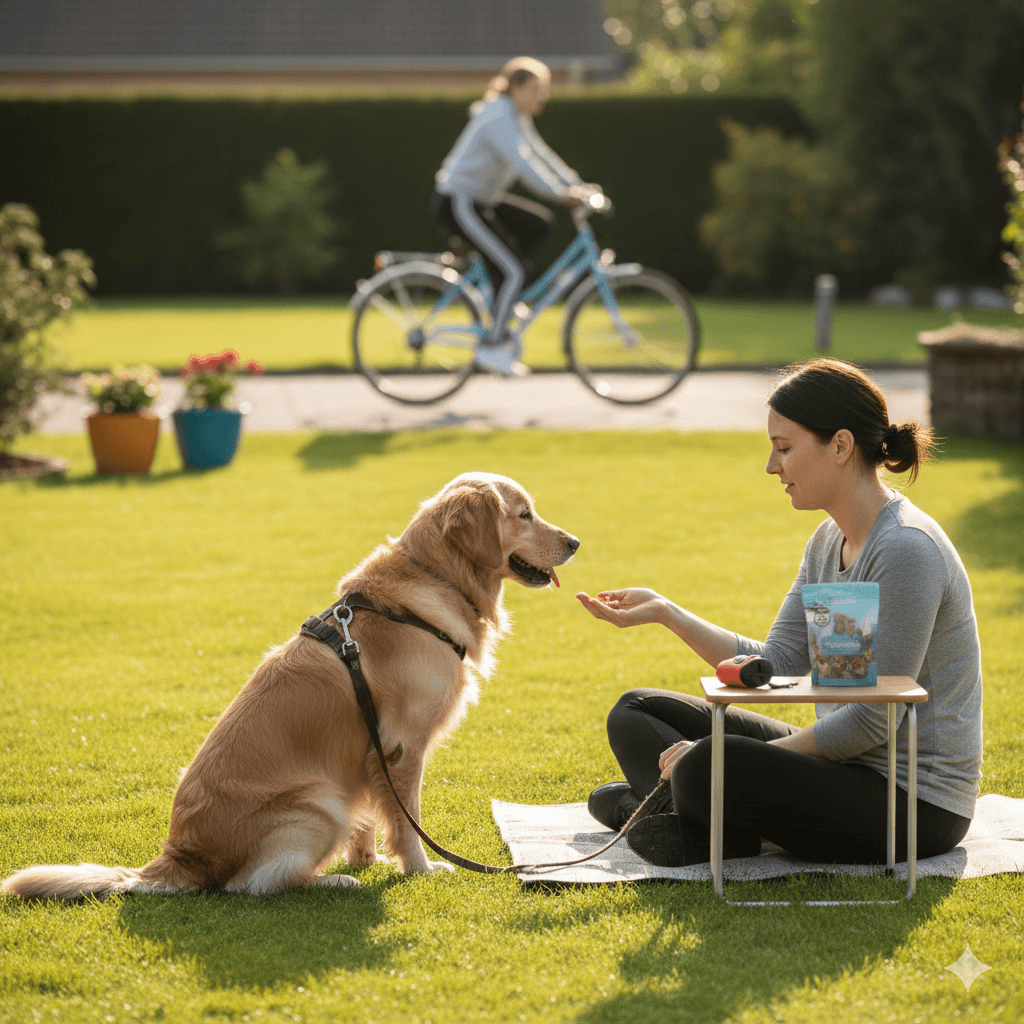Discover the Bavarian Mountain Hound: A Versatile and Loyal Companion
The Bavarian Mountain Hound is a breed that embodies the perfect blend of beauty, intelligence, and utility. Originating from the mountainous regions of Bavaria in Germany, this medium-sized scent hound has long been cherished for its exceptional tracking abilities and unwavering loyalty. Whether you’re an avid hunter, a passionate outdoors enthusiast, or simply someone seeking a devoted family pet, the Bavarian Mountain Hound offers a unique combination of traits that make it stand out among other breeds. In this blog post, we’ll explore everything you need to know about this remarkable dog, from its history and characteristics to care tips and training advice.
Key Characteristics of the Bavarian Mountain Hound
The Bavarian Mountain Hound is admired for its distinctive traits, which make it both a skilled working dog and a loving companion. Here’s what sets this breed apart:
Strong Sense of Smell:
Renowned for their incredible olfactory abilities, these dogs excel at tracking wounded game over challenging terrains.Athletic Build:
With a muscular yet agile frame, they are built for endurance and can navigate rugged landscapes with ease.Short, Dense Coat:
Their sleek, weather-resistant coat is easy to maintain and provides protection against harsh weather conditions.Calm and Friendly Temperament:
Despite their working heritage, Bavarian Mountain Hounds are known for their gentle nature and adaptability to family life.Intelligent and Trainable:
This breed is highly intelligent, making them responsive to training when approached with patience and consistency.
These qualities make the Bavarian Mountain Hound a versatile and dependable partner for various activities, whether in the field or at home.
Health Considerations for the Bavarian Mountain Hound
Like all breeds, the Bavarian Mountain Hound is prone to certain health issues that potential owners should be aware of. Understanding these concerns ensures you can provide the best care for your furry friend.
Hip Dysplasia:
A common condition in active breeds, hip dysplasia can affect mobility if not managed through proper exercise and nutrition.Ear Infections:
Their floppy ears require regular cleaning to prevent moisture buildup and reduce the risk of infections.Bloat (Gastric Torsion):
Deep-chested dogs like the Bavarian Mountain Hound are susceptible to bloat, so feeding smaller meals and avoiding vigorous activity after eating is crucial.Eye Conditions:
Some individuals may develop eye problems such as entropion or cataracts, which should be monitored by a veterinarian.Allergies:
Skin allergies caused by environmental factors or food sensitivities can occur, requiring attention to diet and grooming routines.
By staying vigilant and addressing these potential health concerns early, you can help your Bavarian Mountain Hound live a long and happy life.
Check this guide 👉Bernese Mountain Dog Poodle Mix: Best 7 Expert Tips!
Check this guide 👉Entlebucher Mountain Dog: Best 7 Expert Tips!
Check this guide 👉Greater Swiss Mountain Dog Lifespan: Best 7 Expert Tips!

Pros of Owning a Bavarian Mountain Hound | Cons of Owning a Bavarian Mountain Hound |
|---|---|
Excellent tracking and hunting skills | Requires plenty of physical activity |
Gentle and friendly demeanor | Not ideal for small apartments |
Low-maintenance coat | Prone to separation anxiety |
Highly trainable and intelligent | Needs experienced handling for advanced tasks |
Great with children and families | Limited availability outside Germany |
Training Tips for Your Bavarian Mountain Hound
Training a Bavarian Mountain Hound requires patience, consistency, and a clear understanding of their instincts and personality. These tips will help you build a strong bond while maximizing their potential.
Start Early:
Begin obedience training and socialization during puppyhood to establish good habits and confidence in new environments.Use Positive Reinforcement:
Reward-based methods work best, as this breed thrives on praise and treats rather than harsh corrections.Focus on Tracking Skills:
Leverage their natural talent for scent work by incorporating fun tracking exercises into training sessions.Provide Mental Stimulation:
Engage their sharp minds with puzzle toys, interactive games, and varied commands to prevent boredom.Be Patient and Consistent:
While intelligent, these dogs can sometimes display stubbornness; consistent guidance helps overcome resistance.
With the right approach, training your Bavarian Mountain Hound becomes a rewarding experience for both of you.
Exercise Needs of the Bavarian Mountain Hound
As an energetic and athletic breed, the Bavarian Mountain Hound requires ample physical activity to stay healthy and content. Meeting their exercise needs is essential for their well-being.
Daily Walks and Runs:
Aim for at least one to two hours of exercise daily, including brisk walks, runs, or hikes in varied terrain.Off-Leash Playtime:
Secure areas where they can roam freely allow them to burn off energy and indulge their exploratory instincts.Mental Challenges:
Incorporate scent-based games or agility courses to engage their mind alongside physical exertion.Weather Considerations:
Be mindful of extreme temperatures, as their short coat offers limited insulation against cold or heat.Avoid Overexertion:
Balance intense exercise with rest periods to prevent strain on joints and muscles, especially in growing puppies.
Providing sufficient exercise ensures your Bavarian Mountain Hound remains happy, healthy, and well-behaved.
Common Misconceptions About the Bavarian Mountain Hound
Despite their many admirable qualities, several misconceptions surround the Bavarian Mountain Hound. Clearing up these myths helps paint a more accurate picture of the breed.
They Are Aggressive Hunters:
While skilled hunters, they are not aggressive and typically display a calm and composed demeanor.They Don’t Make Good Pets:
On the contrary, their friendly and adaptable nature makes them wonderful family companions when properly trained.They Require Constant Work:
Though bred for hunting, they can thrive in non-working roles with sufficient mental and physical stimulation.They Are High-Maintenance Grooming Dogs:
Their short coat is low-maintenance compared to longer-haired breeds, needing only basic care.They Are Rare Everywhere:
While rare outside Germany, dedicated breed enthusiasts worldwide are helping expand their presence.
Understanding these truths ensures you appreciate the breed for who they truly are.
Tips for Finding a Reputable Breeder
If you’ve decided to bring a Bavarian Mountain Hound into your life, finding a responsible breeder is critical. Follow these guidelines to ensure a healthy and ethical purchase.
Research Pedigree and Health Testing:
Responsible breeders conduct health screenings to minimize genetic disorders in their litters.Visit the Breeding Facility:
Touring the facility allows you to assess living conditions and meet the parents of the litter.Ask Questions Freely:
A reputable breeder will happily answer inquiries about temperament, lineage, and care recommendations.Avoid Puppy Mills:
Steer clear of breeders who prioritize profit over welfare, often resulting in unhealthy or poorly socialized puppies.Consider Rescue Options:
Adopting a Bavarian Mountain Hound from a rescue organization gives a second chance to a deserving dog.
Taking these steps ensures you bring home a happy, healthy pup.
Fun Facts About the Bavarian Mountain Hound
Beyond their practical uses and endearing personalities, the Bavarian Mountain Hound has some fascinating quirks worth knowing.
Developed for a Specific Purpose:
Originally bred in the late 19th century to track wounded game in steep terrains, their skills remain unmatched today.Rare but Revered:
Though relatively unknown globally, they are highly respected within hunting communities for their precision and reliability.Distinctive Appearance:
Their noble expression, dark eyes, and reddish-brown markings give them a regal yet approachable look.Versatile Workers:
Beyond hunting, they excel in search-and-rescue missions due to their keen sense of smell and stamina.Loyal Lifelong Companions:
Known for forming deep bonds with their humans, they are fiercely loyal and protective of their families.
These fun facts highlight why the Bavarian Mountain Hound continues to capture hearts around the world.
Frequently Asked Questions About the Bavarian Mountain Hound
Is the Bavarian Mountain Hound good with kids?
Yes, their calm and friendly nature makes them excellent companions for families with children.
How much grooming do they need?
Their short coat requires minimal grooming—regular brushing and occasional baths are usually sufficient.
Are they suitable for apartment living?
Due to their high energy levels, they are better suited for homes with access to outdoor space.
Do they get along with other pets?
With proper socialization, they generally coexist peacefully with other animals.
Where can I find a Bavarian Mountain Hound puppy?
Reputable breeders are primarily located in Europe, so research carefully and consider international adoption options.
Why the Bavarian Mountain Hound Could Be Your Perfect Match
The Bavarian Mountain Hound is a breed that combines beauty, brains, and brawn in a truly remarkable package. Whether you’re drawn to their unparalleled tracking abilities, their loyal and affectionate personality, or their striking appearance, there’s no denying the appeal of this versatile hound. By understanding their needs and committing to providing proper care, training, and companionship, you’ll unlock the full potential of this extraordinary breed. If you’re ready for an active, intelligent, and loving canine companion, the Bavarian Mountain Hound might just be the perfect addition to your life.
How to Desensitize a Dog: Best 7 Expert Tips! – Learn step-by-step methods to help your dog overcome fears and build confidence safely.
Cat Postpartum Depression: Best 7 Expert Tips! – Learn to spot signs, support your cat, and ensure a healthy bond with her kittens during recovery.
Dog Postpartum Depression: Best 7 Expert Tips! – Learn to spot symptoms, support your dog’s recovery, and ensure a healthy bond with her puppies.
Pemphigus Erythematosus in Cats: Best 7 Expert Tips! – Learn to recognize symptoms, manage flare-ups, and improve your cat’s quality of life.




